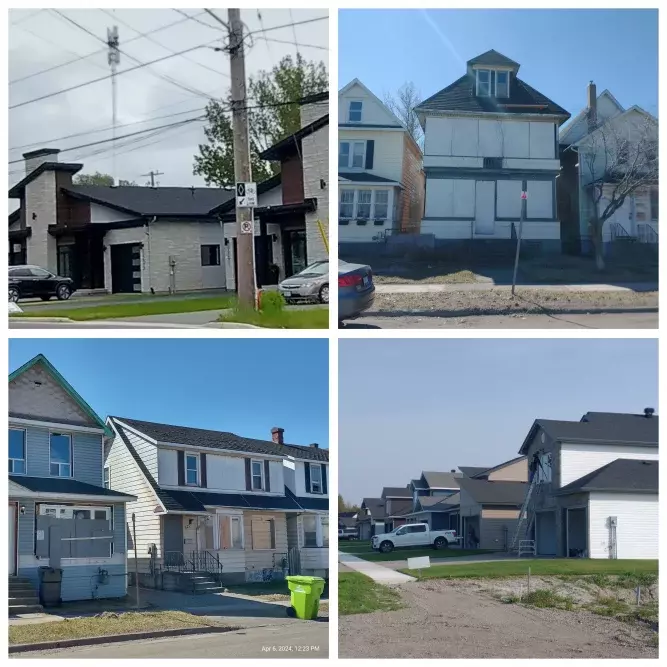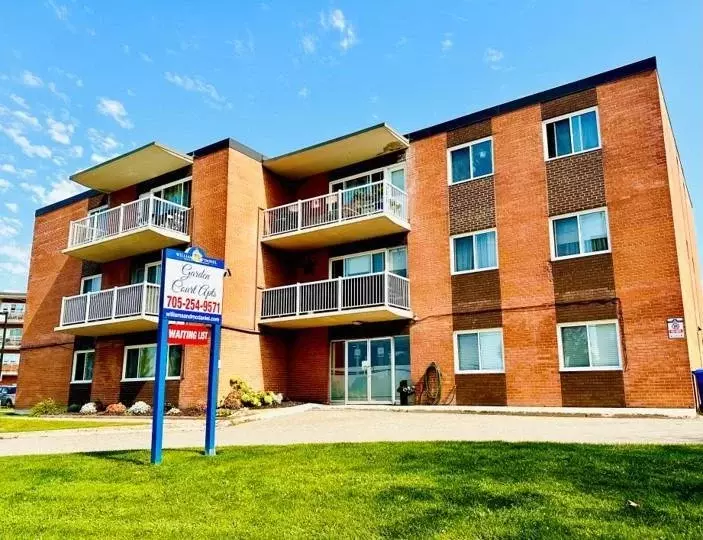Looking across the street at the newly-built duplex townhouses for sale, I wonder why it cost over $800k for half a house in the Sault.
It is what it is! Any new townhouse, in the Sault, comes with an average selling price of approximately $600k. Freehold houses with three bedrooms, two baths, and a two-car attached garage sell in excess of $700k in what can only be described as “financially gated communities”. These houses in new sub-divisions are now financially gated to most people in the Sault.
Compounding the un-affordability of these homes is the excessively high residential municipal tax mill rate of 1.8%. So if a residential home is MPAC assessed (2016 yr.) at $560,000 or more, multiplying Sault’s municipal residential tax mill rate set at 1.8%, the municipal taxes owing to our City will be $10,000/yr.
Houses, in the Sault, have seen significant selling price increases; million-dollar home sales are no longer outliers. Since COVID, the Sault’s residential property selling prices have sky-rocketed undoubtedly triggering drastic increases in the MPAC (AVM) assessed property tax valuations. MPAC has a computer artificial intelligence algorithm that sets a current assessed property value based on (AVM).
“The Automated Valuation Model (AVM) is an accurate, real-time estimate of residential market value… MPAC’S AVM has been developed using advanced statistical techniques combined with sound appraisal methodology.” MPAC.
MPAC’s AVM models and predicts what your residential property is worth “today” using current residential sales data in your neighbourhood.
The current MPAC residential property valuation date is set at the 2016 year; therefore, municipal taxes are based on the MPAC assessed value of your property set at the 2016 date. What is the status of the Sault’s MPAC re-assessment for residential property?
The Ontario Province-wide MPAC re-assessment to bring all residential properties up to the current 2024 market value using AVM was postponed again. Ultimately, MPAC property assessed values must be squared with the current property values based on an updated year AVM residential property assessment.
Most residential homes in the Sault, in specific neighbourhoods, will see a significant increase in MPAC assessed value. How will the updated residential property re-assessment affect your net municipal taxes?
A question best left to the President, CAO of MPAC, Ms. Nicole McNeil.
“if your property’s value has gone up at the same rate as others in your area and the budget in your municipality stays the same; you are not likely to see any impact on your property’s taxes after re-assessment, because it is a net zero gain. Municipalities are not allowed to profit off the assessment. They (municipalities) have to balance the budget. It’s the relative value of your home within the municipality and neighbourhood that make a difference.”
So, if everyone’s property increases at the same rate (based on MPAC AVM 2024) and the Corporation of the City of Sault Ste. Marie can “balance the budget”; by effectively reducing the mill rate, it’s a net zero gain – your property taxes don’t go up.
The two predominant variables factoring how much more municipal taxes you are going to pay are: how much did your property assessment (MPAC AVM) go up relative to others in your neighbourhood/municipality and can your municipality “balance the budget” to bring down the municipal residential mill rate producing a net zero gain.
The new MPAC assessments will probably polarize taxes in the city more than ever. Some neighbourhoods in our City experienced exponential growth in property valuation, while other areas had marginal gains. The lack of a Community Housing Improvement Plan (CHIP) in the “old neighbourhoods” stymied (MPAC AVM) assessment growth in many neighbourhoods.
From a municipal tax fairness point of view, we now have some residential properties paying $10,000/yr municipal taxes with other properties in “old neighbourhoods” paying $2,000/yr for essentially the same services.
Can our City “balance the budget”? In my opinion, we have a spending culture at the municipal level that will never be able to lower the residential tax mill rate enough to offset the increased property values to produce a net zero tax gain.
Property taxes will significantly rise because our City Council and City Administration do not have the willpower to control costs, and there is no departmental oversight and accountability with an independent auditor.
One thing for certain, after the almost decade-long overdue province-wide MPAC property re-assessment is completed; my new neighbour will NOT be the only one paying $10,000/yr in municipal property taxes.
Mark Menean, URBAN MATTERS.
Thank you MPAC website







Well explained – thanks for the article.
This article talking about “old neighbourhoods” reminded me of this post from strongtowns
https://www.strongtowns.org/journal/2017/1/9/the-real-reason-your-city-has-no-money
The P.O.S. corrupt P.M. is responsible for all of it, ruining everyone’s life and then some.
The rich get richer, the poor suffer immensely.
Why is this dirt bag still in office?
Municipalities and and MPAC are responsibilities of the provincial not national government. Why did Steve drop out of school in grade 3?